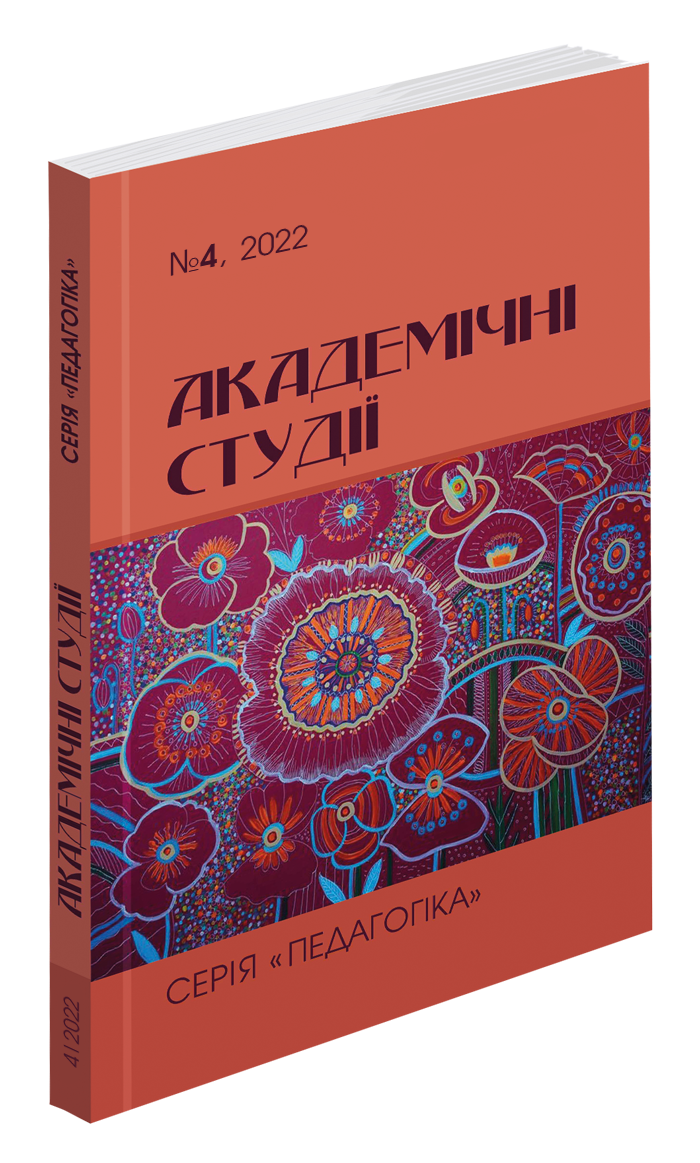Abstract
The article considers the specifics of the use of educational web quests as a kind of pedagogical scaffolding in the higher education system (structure, implementation methodology, assessment features), analysed the feasibility of implementation in the conditions of distance and mixed education. Pedagogical scaffolding involves creating conditions for improving the success of each pupil or student. With this approach to learning, more complex topics are usually broken down into separate microtopics or concepts. The teacher provides support (if necessary) at each stage, creation of conditions for the mastering of certain concepts in the process of carrying out instructions, exercises. The acquisition of new knowledge is based on the previously acquired knowledge, and this process becomes similar to the process of building a tall structure with the help of scaffolding. In this way, a psychologically comfortable environment is created in which pupils and students can achieve a higher level of understanding of the new material and the formation of necessary skills than in the absence of outside help. To illustrate the stated problem, the authors presented the scenario of the web quest “Winning Resume”. Web quests combine various didactic techniques in one integrated educational activity, develop students’ cognitive skills, contribute to the formation of communicative competence in a foreign language in the professional sphere, and the formation of critical thinking. Pedagogical scaffolding as a way of guiding cognitive activity plays an important role in this process, since knowledge cannot be transferred in a ready-made form. The educational process can only create for students a favorable environment for successful self-development and self-expansion of knowledge. Students improve the skills to interpret the information obtained, find arguments for and against, analyse and evaluate different points of view on certain issues. We also note that the web quest helps to create conditions for the development and self-realization of student youth, improves their adaptation to the distance educational process in wartime conditions.
References
Ямшинська Н. В., Невкіпілова О. Я. Освітній процес у контексті ідеї конструктивізму. Теорія навчання, 2019. Вип. 11. Т. 2. С. 193. 2. Dodge, B. (1997). Some thoughts about WebQuests. URL: https://webquest.org/sdsu/about_webquests.html (дата звернення: 20.12.22).
Dodge, B. (2002). WebQuest Taskonomy: A Taxonomy of Tasks. URL: http://webquest.org/sdsu/taskonomy.html (accessed 20.12.22).
Farreny, J.A. (2022) Webquests and Blogs: Web-based Tool for EFL Teaching. URL: https://silo.tips/download/ webquests-and-blogs-web-based-tool-for-efl-teaching (дата звернення: 20.12.22).
Halat E. A. Good Teaching Technique: WebQuests. The Clearing House: A Journal of Educational Strategies, Issues and Ideas. 2008. vol. 81, issue 3. P. 109–112.
Jones T., Cuthrell K. YouTube: Educational Potentials and Pitfalls. Computers in the Schools. 2011. Vol. 28, issue 1. P. 75-85.
March, T. (2004). What are WebQuests (really)? URL: tommarch.com/writings/what-webquests-are/#:~:text (дата звернення: 20.12.22). 8. Nielsen Jakob, Norman Don. The definition of user experience. URL: https://www.nngroup.com/articles/ definition-user-experience/ (дата звернення: 20.12.22).
Serhat Kurt (2021) WebQuest: An Inquiry-oriented Approach in Learning. URL: https://educationaltechnology. net/webquest-an-inquiry-oriented-approach-in-learning/ (дата звернення: 20.12.22).
Словник UA. URL: https://slovnyk.ua/index.php?swrd=квест (дата звернення: 20.12.22).

